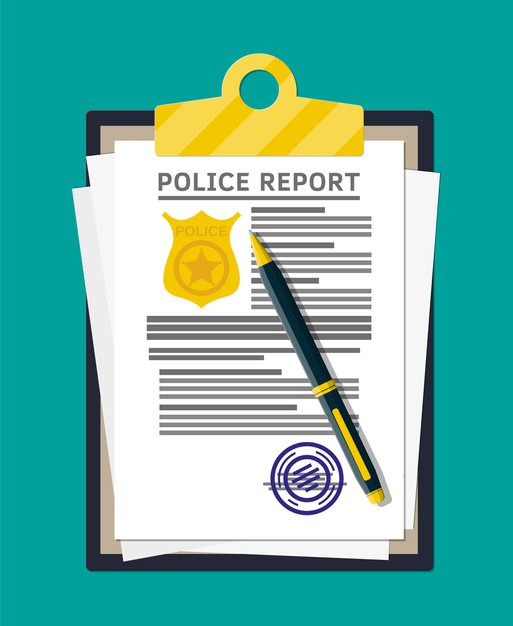DUI law is complex and constantly changing. And the fact each case is unique, you cannot base on an isolated instance to determine yours. Therefore, obtaining advice from an experienced DUI lawyer can be priceless.
In this post, you will discover 22 simple Tips, from a top-rated DUI Lawyer in the country, which cover advantages of having a dui defense lawyer on your side, steps to take if you get involved in accident while driving intoxicated, and simple tips you can use to avoid driving under the influence. Please keep watching until the end for the simplest way to beat DWI.
Here are the 22 DUI Tips from Top-rated DUI layers in the country
- Remain Silent and Calm
If you get involved in a DWI incident, first and foremost, you need to remain calm. All that is required of you to disclose to the officer is your correct name and current address. This extends to all times, including in prison after arrest. Anything else you say and everything you provide can be used as evidence against you later.
The most damaging information in most DUI cases is the one that comes out of the client’s mouth. If you want to beat DWI charge, you must remain silent and calm.
- Refuse Sobriety Test in the Field
 Never take any form of “sobriety testing” on the road, especially at DUI checkpoints. In some states, police scan is 100% voluntary. The NHTSA standard field sobriety tests are not “reliable” of a person’s sobriety. Eye and agility tests have never been approved by peer-reviewed research. The “standards” for different age groups and body sizes have never been studied or used. In addition, these psychological and physical exercises are administered by officers who have no medical training and without testimony on the psychological physical test and measurement.
Never take any form of “sobriety testing” on the road, especially at DUI checkpoints. In some states, police scan is 100% voluntary. The NHTSA standard field sobriety tests are not “reliable” of a person’s sobriety. Eye and agility tests have never been approved by peer-reviewed research. The “standards” for different age groups and body sizes have never been studied or used. In addition, these psychological and physical exercises are administered by officers who have no medical training and without testimony on the psychological physical test and measurement.
A Texas study presented by two former Texas training supervisors at the American Academy of Forensic Sciences revealed a detailed review of thousands of Texas DWI videos showed that more than 98% of all Texas officers failed to take all three exams.
- Politely Say No to Portable Breathalyzer
The next tip on how to get over a DUI violation is to not take a road alcohol test on a Breath Blood Alcohol Tester Portable Breathalyzer. In most states, digital results from a manual primary respirator do not come from the “certified” forensic device. According to this statement, “forensic medicine” means “accepted in a court of law.” In a DUI trial, the “number” is not accepted in most states, but the police officer can testify that the result was “positive” for alcohol. In certain states, like California, where the alco sensor is accepted, the Attorney General may use it to try to convict you.
When Jurors hear the “positive” number they tend to think of the worst, not the best. To win your DUI case and avoid this mysterious and potentially harmful “inference”, simply refuse to take this optional and voluntary alcohol test. Just say “no”, but do it politely.
- Do Not Resist Arrest
If you are being arrested for DUI/DWI, do not resist the arrest. Resistance can create another criminal obstruction charge, either at the level of a misdemeanor, no physical contact with an officer; or serious obstruction which involves physical contact such as hitting, biting, kicking, butter, or spitting. You won’t get much sympathy from a jury or judge if your behavior is provocative or offensive toward the law enforcement officer.
Resisting arrest is consistent with drunk people; do your best to avoid it. Calm, polite, and responsive detainees, with no further evidence of poisoning or accumulated physical schools, are often viewed as “accidental felon”.
- Request Your Independent blood test
Sometimes, after a person is arrested for DUI, and breath or blood tests are taken, the suspect will be informed that they are entitled to an independent blood test. This could be a “free prison break” card. Unfortunately, most people don’t want to be upset or don’t understand what this means. Basically, the officer gathered evidence to use against you in the trial for a DUI charge, specifically a blood sample or breath test results. However, you have the right to prove your innocence – evidence that the officer’s report is completely wrong. It is not enough to be able to re-examine the blood sample you took, you have the right to have your blood examined, drawn by your phlebotomist and analyzed by your laboratory. This is “the right to independent proof”.
If the police officer interferes with your right to independent examination you can take legal action. You don’t actually have to do an independent blood test, but you can request your release to get an independent blood test. If the officer is going to take you to prison, this could be the “get out of prison free” card. If the officer does not allow you to obtain this evidence sufficiently and independently, it can lead to the suppression of a blood test or a breath test … because it is basically inequitable. If officers are allowed to collect evidence to use against you, you must be allowed to collect evidence to use against the officer’s evidence. You have the right to prove your innocence, if this interferes, the officer has violated your right to fair legal procedures and basic justice in the legal system.
- Pay Attention to Details
It is important that you Pay attention to every detail of what is happening to you. This is crucial if the police officer who arrested you lacked a body camera or car video. Here is an example. North Carolina’s implicit consent law requires that a detained officer take you to prison first, then you must read Miranda’s rights about you; and then you are given tacit approval. Under North Carolina law, you have 30 minutes to communicate with whomever you wish, and that must be a skilled DUI lawyer.
The catch in North Carolina is that once the officer reads Miranda’s warning, he will try to ask you in a way that looks like a prison checklist. One of the questions is: “On a scale of 1 to 10, where do you place your weakness?” Do not respond to anything other than your name and address.
- Take the Officer’s Implicit Approval Test
Yes, take the test, but first ask the officer, “Am I allowed to speak to a DUI lawyer first?” The evidence that the police provides after arrest is the official tacit approval test, which is required by the law. Refusing to take the breath alcohol test required in states that have criminalized refusing it can lead to prison for violating the refusal of tacit approval. Don’t confuse your commitment to perform a “tacit approval” breath test (or blood test) after arrest with a portable breath alcohol test administered on the road. In some states, you can lose your entire right to drive for a whole year by refusing to take the test.
Additionally, in certain states, such as Georgia, law enforcement officers are authorized to request a blood search warrant and a forced blood test. In most states, once you take the test that the officer requires, you are entitled to receive your own independent test or tests, from someone you choose. Know the name of the nearby lab or hospital that will perform your blood test.
- Record Names and Numbers
On your trip to prison, you can deal with a transportation officer, a custodian, or even another prisoner who can be an excellent witness to your case. Record the names and contact number of passengers in the vehicle and where they sit. Being arrested does not mean you are guilty; do your best to remember the name of everyone who can testify you are a great person. If possible, get a copy of their ID. Write this information down at your first opportunity and provide it to your DUI lawyer.
- Resume Administrative Detention for Administrative Cancellation

More than 90% of DUI laws in all states contain provisions related to taking your physical and plastic license and replacing it with a form or paper, and suspending or revoking your right to drive. There will be a very short period of time to contest this suspension or the proposed revocation of your driver’s license, from 10 to 45 days, depending on the state laws in which you were arrested. Therefore, contact a DUI lawyer near me as soon as possible.
The deadline is not the same in every states. In Georgia, for instance, the time period is 30 days to appeal a suspension or the proposed revocation.
- Don’t Talk in Jail
Everything you say can be recorded in prison, even over the phone. Therefore, do not think that what you say to a prisoner or guard will not be potential evidence against you. Do your best to remain silent in prison and focus on posting bonds.
- Don’t Risk New Arrests
While your criminal DUI case is pending, any new arrest can create major problems. To get started, your first warranty may be canceled or you may have to undergo other warranty conditions, just to stay out of prison. These conditions can be painful or even paralyzed. Examples: You must put an alcohol blocking device in your car (painful) or you are not allowed to drive at all (disabled).
Some countries already have laws in force authorizing such a mesh device, because interlocking companies pushed for it.
- Keep Your DUI Bond Low
Your criminal background has a big impact on the amount of bond you pay. The more convictions and arrests you have, the higher your DUI bail amount will be. A misdemeanor DUI bond can be as low as $500 while a felony DUI bond amount can reach up to $50,000, depending on your existing criminal history.
Once the bonds are out of prison, immediately write a time estimate for the previous 24 hours, or more, if you spent time in prison. Start when you woke up that day, and identify potential witnesses. Give this to the drunk driving lawyer.
- Keep the Receipt of Your Purchase
Sometimes the DWI is not resulted from just the beverage but the quantity. If the number of alcoholic beverages is a possible testing problem, and you have paid the restaurant with a credit card, you or your DUI lawyer should obtain this computerized receipt as quickly as possible. Most hospitality companies cooperate voluntarily, but if not, your dui defense lawyer can get help from your court.
- Hire A DUI Lawyer Immediately
After you were arrested for driving under the influence, you will need legal help to help you get out of the prison and avoid revocation of your driver’s license. Immediately hire the best DUI defense lawyer who has experience and competence in DWI incidents. To find the best lawyers in the country and their reviews, visit Martindale-Hubbell, Best Lawyers in America, and Super Lawyers. Search for lawyers who have a board certification and good reviews from previous clients.
- Create Videos If Possible
Police offices lie all the times, and even with proof it is difficult to win against them. If you have a video that caught the incident use it on your behalf. Later it may prove to be useful evidence for DUI movements before trial or trial. Some DUI lawyers use videos from the QuikTrip gas station to win difficult DUI cases.
When the video in the building contradicts the officer’s account of what had happened, it often results in the loss of credibility of the police officer. Your dui defense lawyer can obtain a court order, or subpoena, to preserve these images.
- Determine Potential Defenses
Your very DUI incident may have many potential defensive arguments to combat suspected DUI violations. There may be equipment failures, as well as legal defenses for certain aspects of the DUI arrest, such as air bags that  hit you in the face causing head or head trauma, or red face. Therefore, your DUI lawyer may also need to hire an accident reconstruction expert
hit you in the face causing head or head trauma, or red face. Therefore, your DUI lawyer may also need to hire an accident reconstruction expert
But these arguments will not be valid if you previously confessed to the office that you have been drinking and you are drunk. Don’t answer these questions such as Are you drunk? Do you feel weak from alcohol? With these confessions, the case worsens against you. The same, without these confessions, it is easy to discuss the case with a jury.
- Keep Possible DUI Consequences
If you have never been convicted of a DUI charge, you cannot understand the consequences of a DUI conviction on your record. Not only will it affect your license and perhaps your livelihood, but there are thousands of dollars in fines and fees, numerous counseling sessions, internal ignition device requirements, probability of monitoring, and prison time. All of these are mandatory requirements for anyone convicted of a drug, and these are the minimum first-time misdemeanor DUI convictions. If you have a high blood alcohol level, or it is not the first time, or if you have been charged with a serious crime, then everything becomes more dangerous and difficult.
- Plan A Designated Driver
Knowing the possible consequences of a DUI conviction can put you in a position to plan ahead if you decide to go out and drink. Have a designated driver to take you and your vehicle home safely in case you are too drunk to drive. Ask for a specific driver, organize a taxi, drink at home or, if you are going to a bar or restaurant, leave your vehicle at home.
Unlike most criminal offenses, people do not intend to drive drunk. It just happens a little. One of the consequences of consuming excessive alcohol is that your inhibitors and your reasoning go out the window. Even police officers, prosecutors, defense attorneys, and doctors get DUI, and these are the people you think they know best. Plan ahead, it is the best and safest way to enjoy your driving, without violating the law.
- Don’t Be Your Worst Enemy
If you are stopped for possible DUI don’t be your worst enemy. There is a fine line between cooperation and self-protection. When the officer stops you, especially if it is late at night or early in the morning, he will likely think you are driving drunk. The law enforcement agent will approach your vehicle and ask you some questions. The officer may tell you that you were stopped for something, but often it is really just an excuse to see you and talk to you, and determine if there is some sign that you are driving under the influence. Don’t be rude and provocative.
Blood stains, watery eyes, flaming face, disorganized speech and the smell of alcohol – all of these things tend to appear in the police report, things that a person does not control. However, many things can cause Blood Shot, Watery Eyes, Flushed Face, and Mud Speech. The smell of alcohol may be due to recent consumption and not to the amount consumed.
- Don’t Expect Privacy In The Police Car
Don’t assume you have a right to privacy in a police car. Modern police cars, especially if they are intended for use in DUI-DWI arrests, often have audio and video recordings focused on you. No cell phone conversation is taking place on any aspect of the drunk driving problem, because appeals courts in several states ruled that privacy was not provided for in the back seat of a patrol car. They can all be used against you, and that means the difference between winning and losing.
Even without a cell phone, many officers verbally expressed their frustration in the back of the patrol, and were later admitted to court for their conviction. So, remember anything you do in the police cruiser is being recorded.
- Write your own copy of the police report

All the officers who participated in your arrest write a report. This is done so that when the officer goes to trial, if the case goes to trial, he can pretend to remember everything about what happened early in the morning, months before, when you were arrested. To the officer, you are just another person who has been arrested. For you, this is a serious problem which can affect the rest of your life. Write your own copy of the police report and give it to your lawyer.
A good legal case will be discussed, either to suppress evidence or to dismiss the charges or the case, based on the report plus other evidences, including witness if there is any. Clients’ reports tend to be against the ones of the police officers. As excuses, the prosecutors often argue that “the defendant was drunk; he did not write a report, and that, due to the passage of time, his memories are unreliable.” The case can take a few months, several months, and sometimes years, until it goes to trial. No one’s memory will be perfect for a long time.
- “Don’t drink and drive”
Do not drink and drive is a very simple statement that everyone knows. However, every day hundreds of people across the country do so, and cause the death of more than 10,000 people every year. Every day, nearly 30 people in the United States die due to DUI. That’s one person every 50 minutes. Drunk driving is not a game; it’s deadly.
If you have a suggestion, comment or question regarding DUI Lawyer or drunk driving, kindly comment below to share it with our readers.



